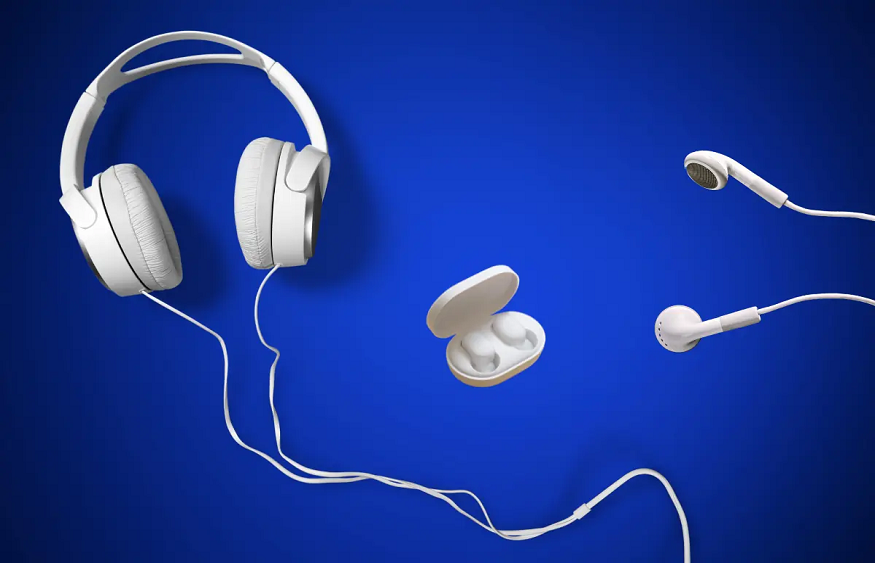In today’s technology-driven world, personal assistance devices are rapidly becoming commonplace in the workplace. Many industries are now using either wireless headsets or corded ones to improve communication, boost productivity and streamline workflow processes. But which one should you choose? Which one is right for you? Let’s take a closer look at their key pros and cons…
What is a Wireless Headset?
When we talk about wireless headsets, we’re referring to those that are connected to another device, such as a computer or telephone, via a wireless connection. These headsets do not have a corded connection, making them a popular choice among offices with a lot of movement or staff who work in different areas of the building. A wireless headset allows you to walk freely around the office without having to hold a handset or be tethered to your desk. Some models even allow you to walk out of the building and into your car if you’re on a call that requires you to travel. This is because many of today’s headsets are designed to pair with your smartphone.
What is a Corded Headset?
Corded headsets connect via a single cord to your device. These come in a variety of styles, from the classic over-the-head model to the ear-clip variety. Most corded headsets come equipped with a noise-cancelling microphone that helps reduce background noise, making your voice sound clearer to the person on the other end of the line. Corded headsets tend to be less expensive than their wireless counterparts, making them an attractive choice for those on a budget. Additionally, corded headsets are able to draw power directly from your device, so they don’t need their own dedicated power source. This makes them a good choice if you don’t have an outlet nearby.
Wireless Headsets: The Pros
– Increased Mobility: The most obvious benefit of choosing a wireless headset is the freedom it gives you to walk around your office. Whether you need to get a drink from the kitchen, move to a different area of the building or venture outside the office entirely, a wireless headset allows you to stay connected in a hands-free manner.
– Sound Quality: A wireless connection allows you to choose from a variety of sound settings, from normal to enhanced sound. This allows you to fine-tune your headset’s sound settings so that you’re heard loud and clear—even in a noisy office.
– Less Distracting: Although we’ve already mentioned that wireless headsets give you the freedom to move around, they also allow you to keep your phone conversation private. You can avoid distracting your coworkers with an audible ring and conversation, which can be a major advantage if you take a lot of calls throughout the day.
– Greater Focus: With a wireless headset, you can avoid being drawn away from your work by a ringing phone. Instead, the headset will silently notify you of an incoming call with a flashing light or vibration. This gives you the freedom to focus entirely on the task at hand.
Wireless Headsets: The Cons
– Limited Lifespan: One of the biggest cons of choosing a wireless headset is the fact that it will eventually need to be replaced. Even if you take good care of your headset, the batteries will eventually need to be replaced, and it’s likely that so will the charging dock. Although some models come with a warranty, it’s important to note that the lifespan of a wireless headset will vary greatly depending on the model.
– Inconvenience: If you choose to use a wireless headset with your desktop phone, you’ll need to keep your headset charged and within reach at all times. Also, depending on the model and setup, your headset may need to be paired with your desktop phone each time you use it.
Corded Headsets: The Pros
– Long Lifespan: One of the biggest pros of choosing a corded headset is that it will last you a long time. As long as you take good care of it and clean it regularly, the corded headset will provide a dependable service for years.
– Improved Sound Quality: Corded headsets, especially the over-the-head variety, tend to have better sound quality than their wireless counterparts. This is because the cable acts as a buffer, blocking outside noise from reaching the headset and creating a clearer sound for the person on the other end of the line.
– Easy to Make a Call: With a corded headset, it’s incredibly easy to place a call. Press the call button and you’ll instantly be connected to the person you’re trying to reach, without having to waste time pairing your device and finding the right settings.
Corded Headsets: The Cons
– No Mobility: The biggest con of choosing a corded headset is that you’ll be tethered to your desk. This can be an inconvenience for those who tend to move around during the day and for those who like to take impromptu breaks. It can also be a problem if you need to relocate within your office for a meeting.
Which One Is Right for You?
When choosing between a wireless headset and a corded one, it’s important to take your workplace environment into account. If your colleagues tend to be very loud, you may find that a corded headset is a better option because it provides a better sound quality. If you’re in an environment where it’s common for people to walk into your office and work more dynamically, a wireless headset is a good choice. If you prefer to keep your work and home life both readily available, you may also want to choose a wireless headset, as some models allow you to pair your smartphone. Whichever option you decide is best for you, you can explore an extensive range of exciting options on businessheadsets.com.




